Fall 2021 Newsletter
Eco-Hero Spotlight
PLA's Summer of Sustainability
by Justin Bennington - Sustainability Assistant
The Eco-Hero Spotlight is an intiative started by Campus Sustainability to actively seek out and recognize individuals or groups that make an eco-friendly impact on BGSU. Anyone can be an Eco-Hero, so long as they are willing to do what it takes to promote sustainability. In this month's newsletter, the Eco-Heroes are a group of promising newcomers known as President's Leadership Academy.
The Office of Campus Sustainability partnered with the President’s Leadership Academy (PLA) to provide students with service projects related to sustainability which furthers BGSU’s sustainability goals. This summer, Campus Sustainability hosted three separate events for the PLA students, ranging from outdoor cleaning projects to indoor organizational projects, working with the sustainability manager and intern.
PLA, in early July, cleaned and prepared recycling equipment for sporting events and games occurring in the fall semester. Throughout the projects, which took place at the stadium and Slater Family Ice Arena, students were able to learn about the campus’ recycling programs, sporting events, and Campus Sustainability’s involvement in both. Many expressed that they learned new things about the recycling process on campus, and all of the work that goes into it.
A few weeks following the initial event, Campus Sustainability invited PLA to our Re-Store program for their second service project. This program focuses on waste reduction and donated items from residence halls and offices throughout campus to prevent unnecessary landfill trash. During the academic year, items are offered for free to new and returning students and faculty/staff at the Re-store. Office and school supplies, clothes, decorations, furniture, and electronics are just some of the available items. During PLA’s time there, the students assisted Campus Sustainability with organization of inventory, cleaning, and recycling of broken or unusable office supplies. Additionally, the students were able to learn of the events, practice proper recycling of items, and get a sneak peek at some of the items up for grabs when they return in the fall with the rest of the Falcons. When asked for feedback on this event, Amarionia McKinnon, 2021 PLA Cohort Scholar, said, “I really enjoyed being a part of this experience. It’s truly a unique opportunity to help the campus prepare for the fall. I didn’t even know that this place [the campus Re-store] existed prior to volunteering, but now I feel very passionate to continue to do volunteer work here in the future!”
PLA and Campus Sustainability then worked together on a final cleaning project, cleaning designated, brown bucket recycling containers that BGSU places in classrooms, residence halls, and offices. The students were able to clean a plentiful amount of both large and small recycling containers that BGSU can distribute throughout campus as the need arises.
Due to the effort, hard work, diligence, and willingness of the PLA students, the Office of Campus Sustainability was able to coordinate these service projects at a scale much larger than Campus Sustainability could handle alone. We extend our appreciation and thankfulness to them for what they managed to accomplish this summer and look forward to future partnership with the President’s Leadership Academy.
If you or your organization, office, or department have an interest in helping further BGSU’s sustainability goals with a service project or involvement of our initiatives, you can get involved here or contact the Office of Campus Sustainability at greenbg@bgsu.edu.
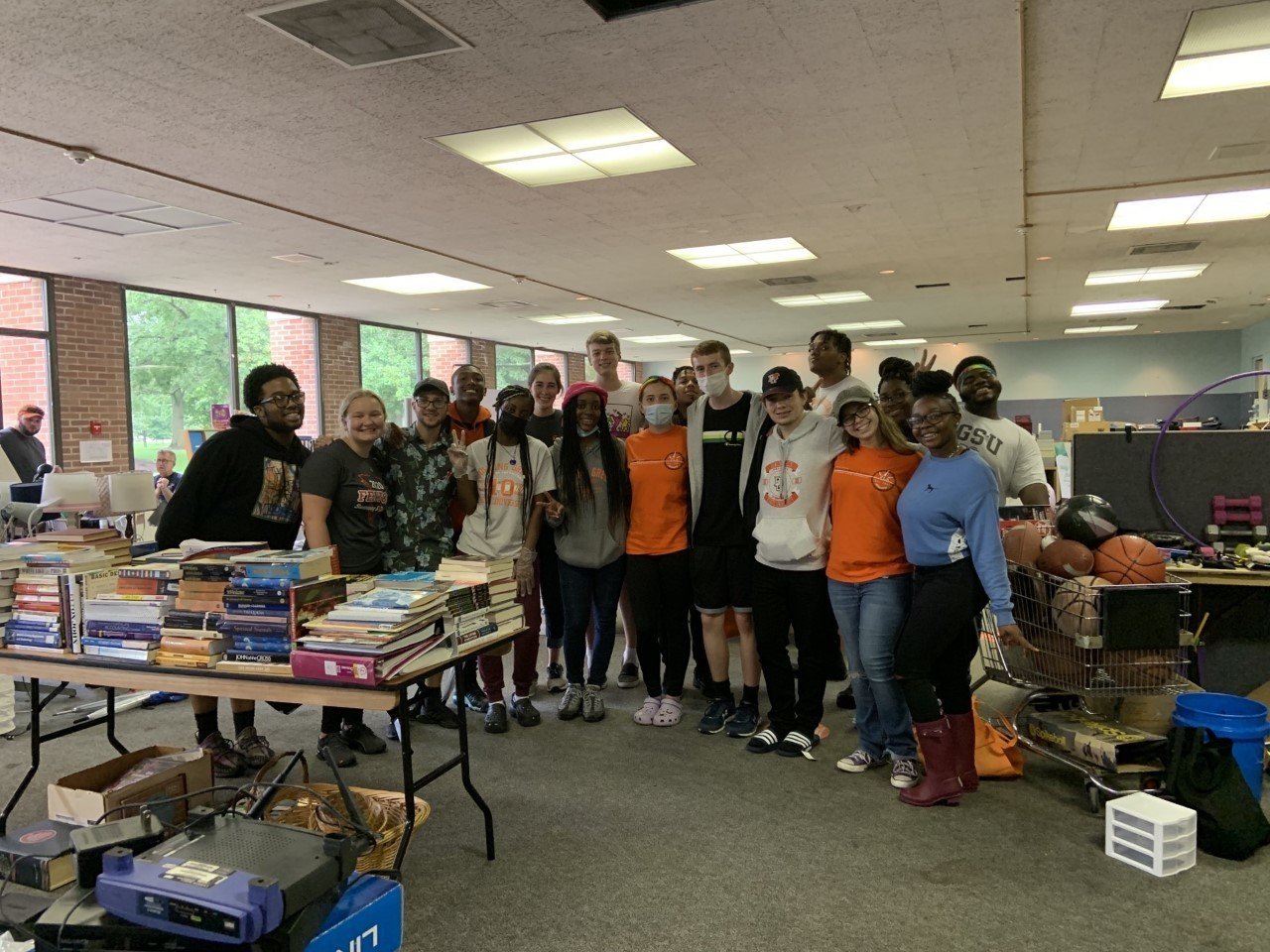
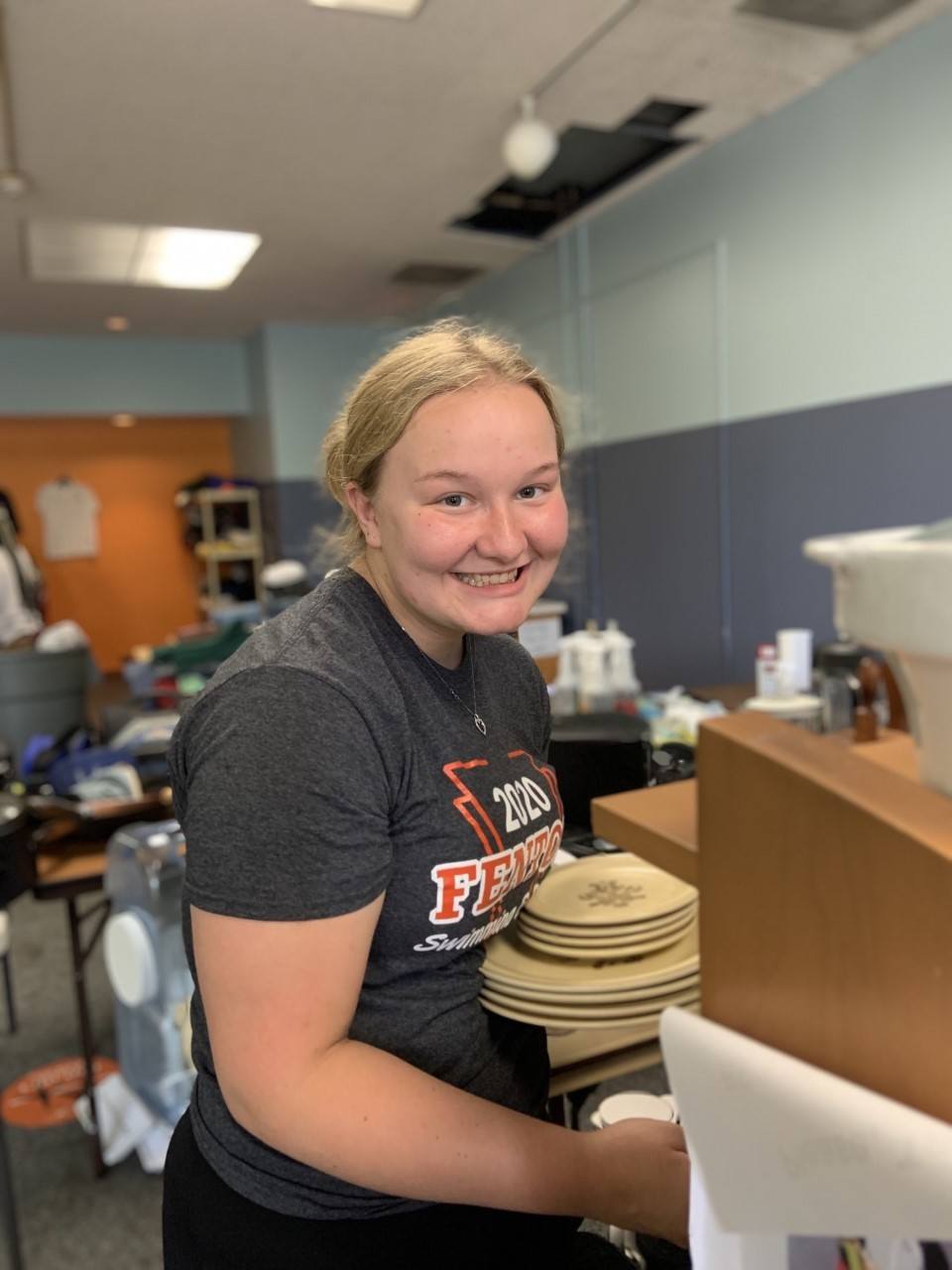
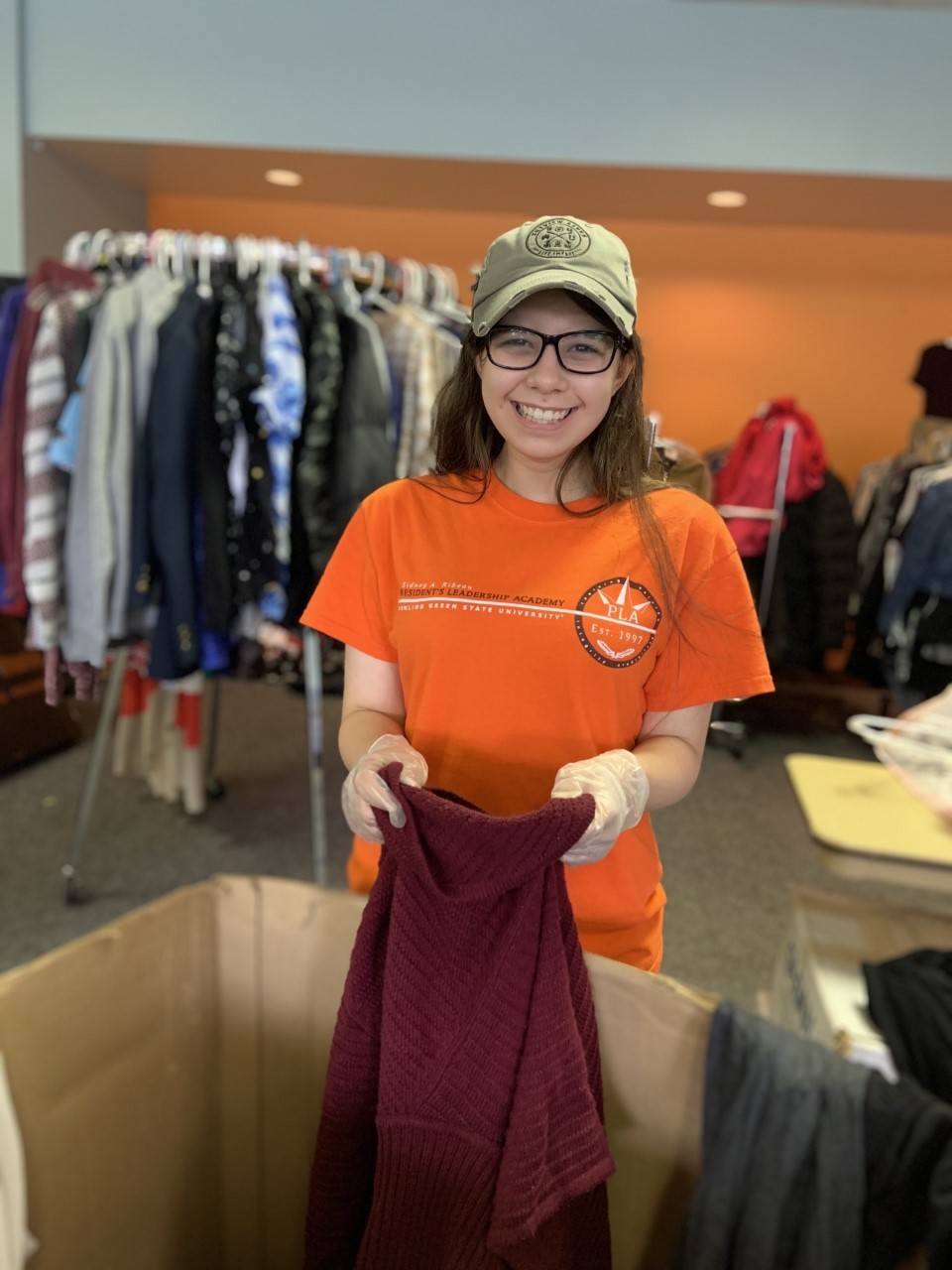
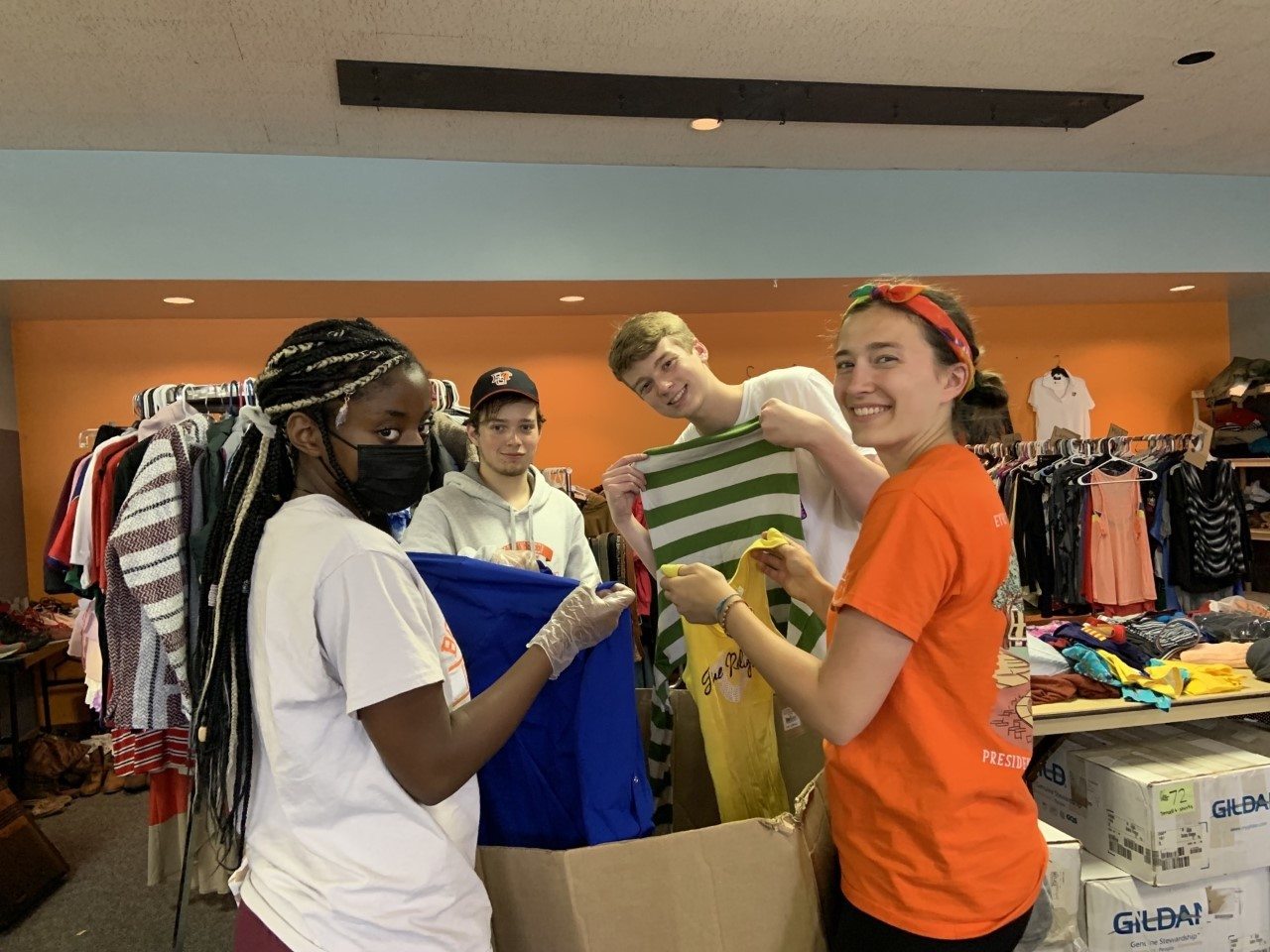
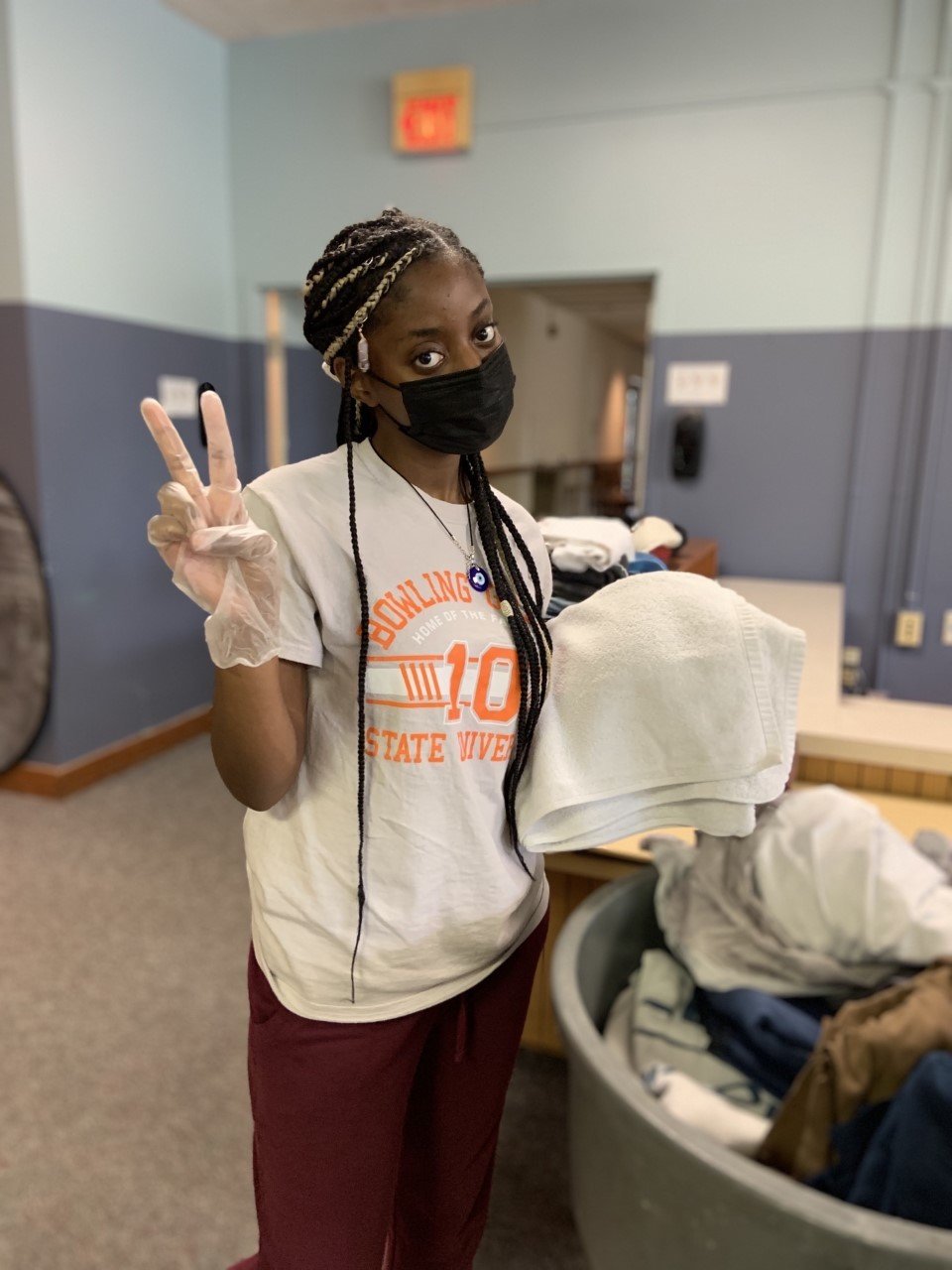
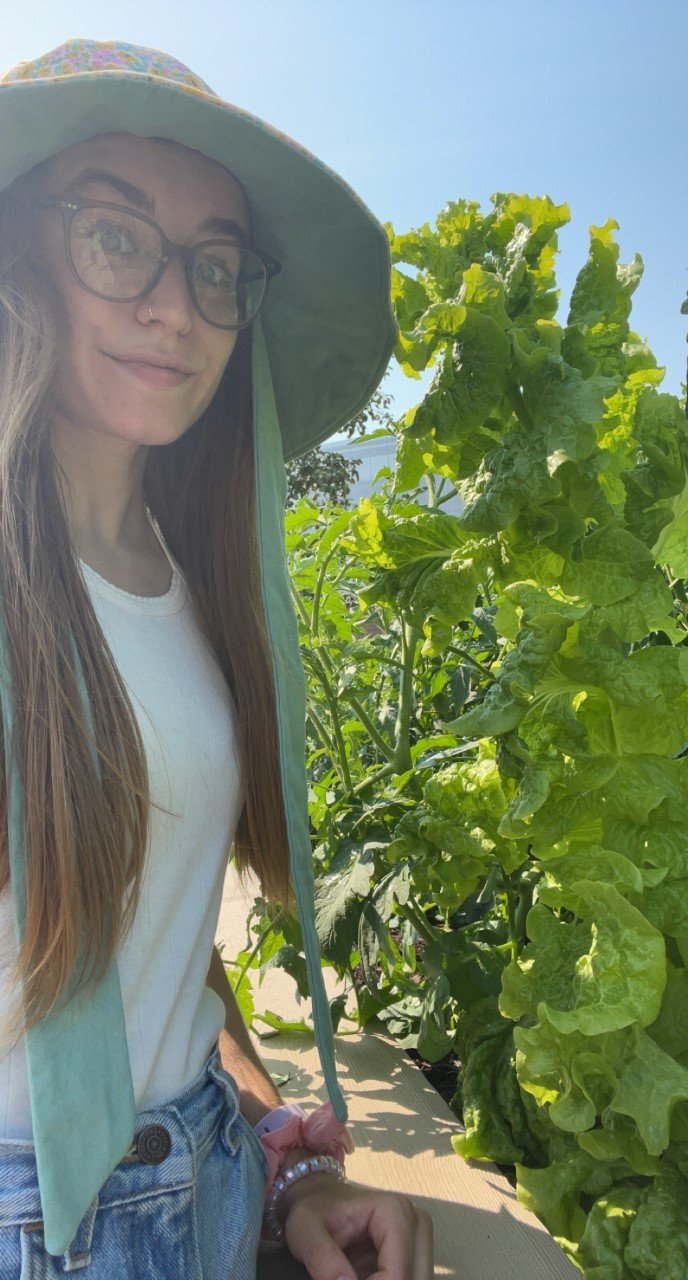
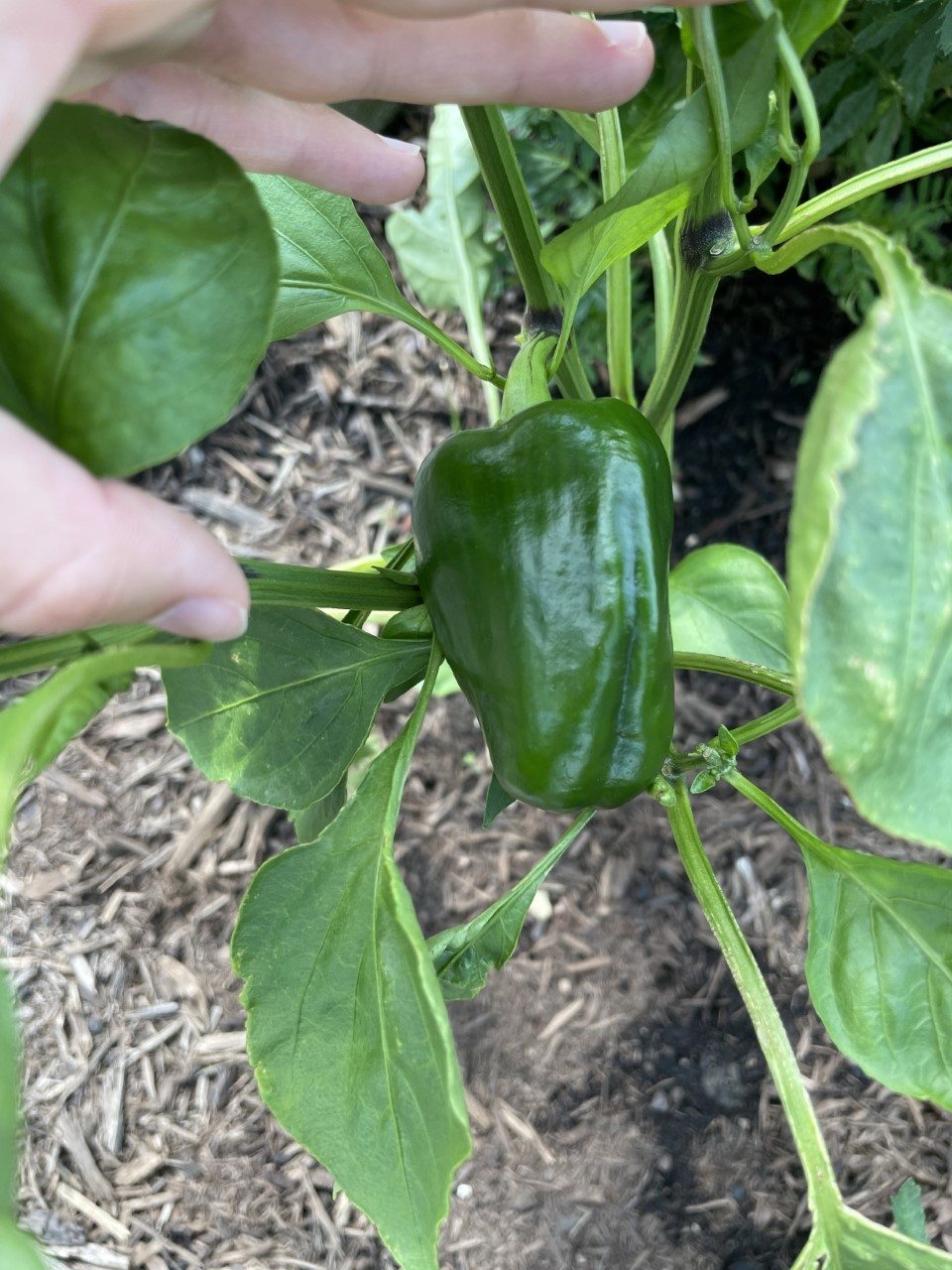
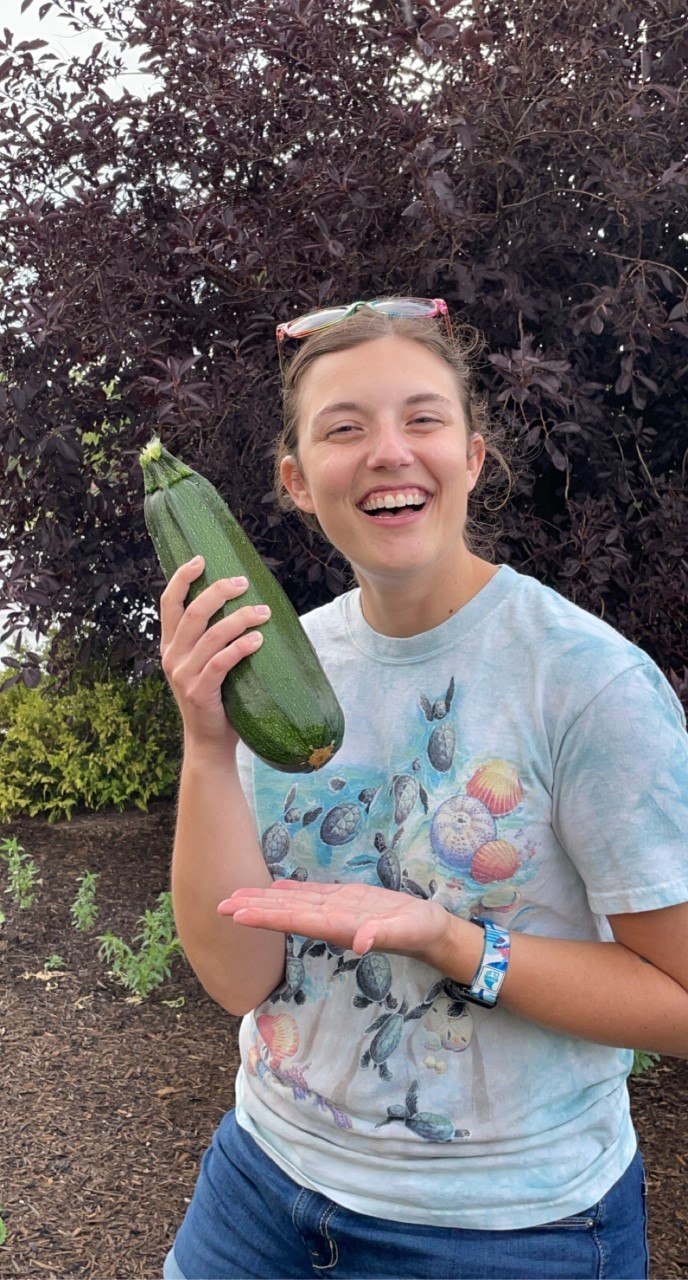
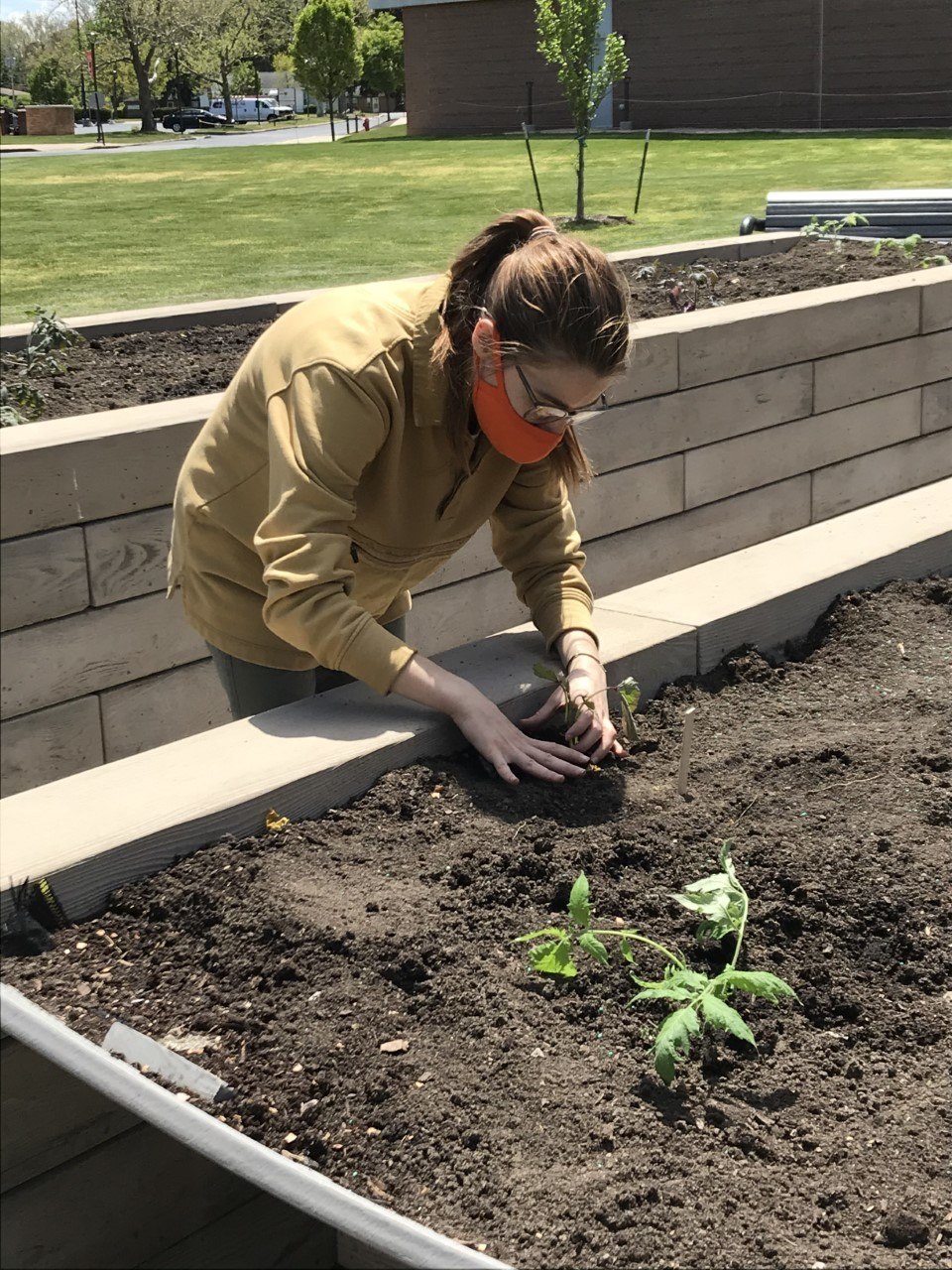
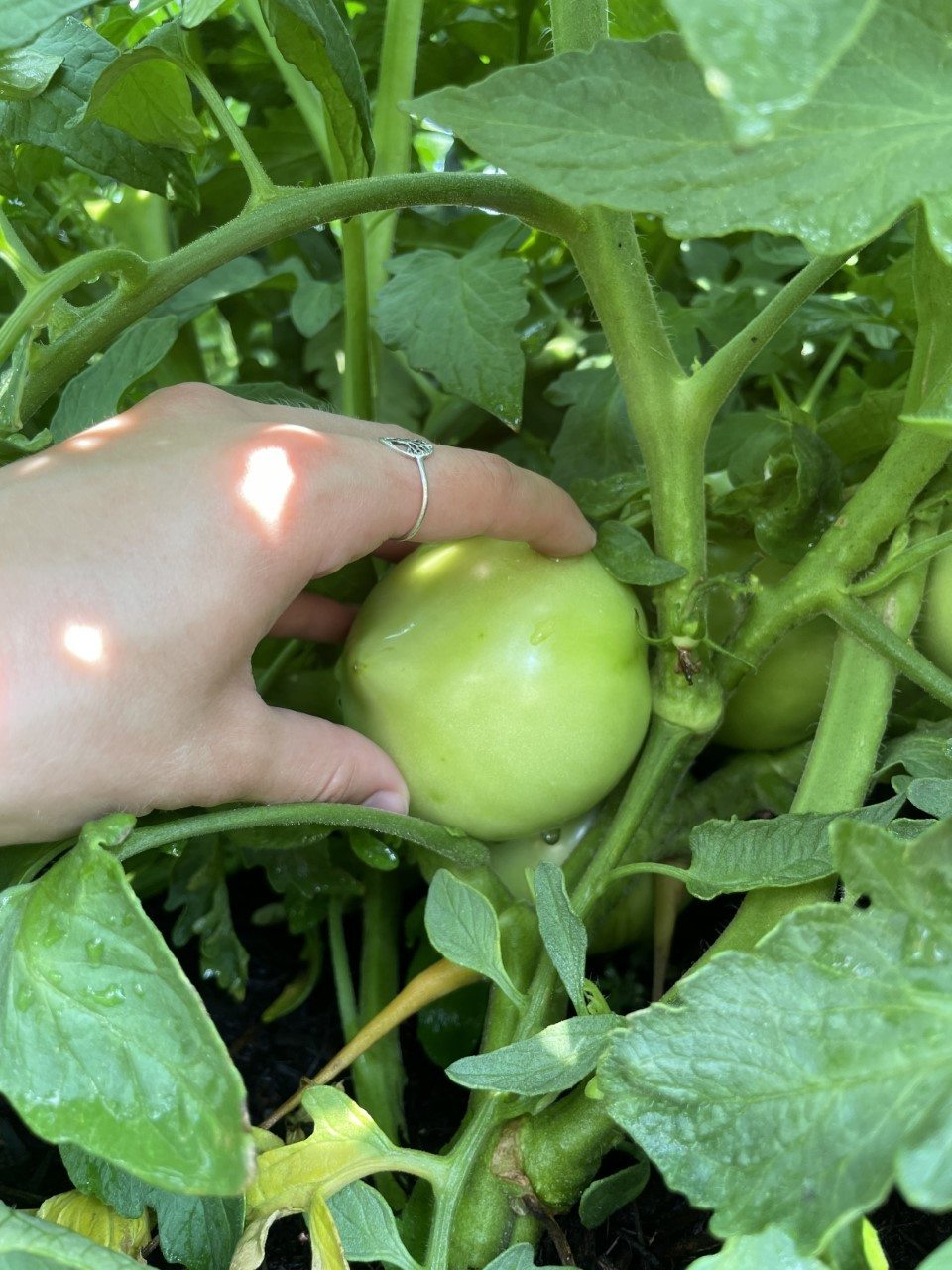
BGSU's Green Oasis
by Justin Bennington - Sustainability Assistant
Did you know that BGSU has a Community Garden growing right here on campus? There is such a garden, coordinated by the BGSU Center for Public Impact. This month, Campus Sustainability was given the opportunity to interview Alessia Saul, a BGSU graduate student, who serves as the Student Garden Coordinator this summer. She shared information with us on the garden, the work she does as the coordinator and as a student, and the increased sustainability that the addition of the community garden brought to BGSU.
The community garden is located between the Fine Arts Building and the Kreischer Quadrangle. It consists of large, raised, waist-level, wooden planting beds used to grow vegetables such as tomatoes, zucchini, peppers, radishes and more. Additionally, there are a collection of smaller and shorter wooden beds for other plants and flowers. Alessia describes her job as, “tending to the garden each day and watering it when needed, pulling weeds, and promoting its sustainable features.” This year things got off to a slow start because tomato and pepper plants got “sunburned” when they were first put out, but now they are looking strong. There have been a couple of giant zucchinis here and there so far, and the tomatoes are starting to ripen. When asked about the primary purposes of the garden, Alessia explained that the garden's purpose is to help the BGSU Community access healthy, local produce while also teaching them about gardening, and want to make sure that everyone is able to have fresh greens on their table for their families. Students who are living on campus may also find it nice to have a nearby garden to spend time in and tend to, and can use it as a way to get involved in the community. She also added that the students at Kohl Hall's Chapman Learning Community actually grew the tomatoes, peppers, snapdragons, and marigolds from seeds indoors using grow-lights during the spring semester. They generously provided most of the plants in the garden, which are now thriving outdoors.
The community garden’s benefits, sustainability, and impacts were also discussed during the interview. Alessia reported that the BGSU Community Garden will be donating veggies to the Brown Bag Food Project (https://www.brownbagfoodproject.org/) here in Bowling Green. It's a non-profit organization that helps combat food insecurity in Wood County. People are also welcome to visit the garden and harvest what they need. In addition to the donations, Alessia explained that having a community garden is a great way to show the sustainable impact of local food. Food that travels far has a carbon footprint from transportation, but when it's grown locally that footprint is greatly decreased. A tomato that you grew in your backyard (or at the campus community garden!) is much more sustainable than buying a grocery store tomato transported from many states away and putting it in a plastic bag to get it home. The garden can also be a great way to get people outside, which can really help increase one's appreciation for nature. There are benches and a little lending library next to the garden, and sometimes people will just sit and read. Alessia believes that the Community Garden’s efforts at carbon footprint reduction are consistent with and supportive of the BGSU Climate Action Plan. By sourcing local produce, carbon emissions from vehicles and use of plastics for bagging are greatly reduced. If a student walks to the community garden, picks a fresh tomato, and disposes of the uneaten parts as compost, that process becomes completely carbon free. Comparatively, a student could drive to the grocery store, bag the tomato, drive home, and discard the leftovers and plastics in landfill waste. The second scenario is much more carbon heavy and not nearly as sustainable as the community garden.
Alessia is currently finishing up her M.S. degree in Biological Sciences. Her thesis examines the impact of long-lasting chemicals on the aquatic food web (focusing on insects specifically). She hopes to pursue a Ph.D. in the future, but has a lot of career interests, and wants to get involved with community gardens wherever she ends up going. She believes it is a wonderful way to give back to the community while also promoting sustainability. Students can volunteer with the garden by contacting the Center for Public Impact (publicimpact@bgsu.edu) or Alessia directly (saulac@bgsu.edu). They can always use an extra hand with watering and weeding.
If you would like to learn more about Campus Sustainability and additional work related to sustainability, contact us at greenbg@bgsu.edu or explore the Office of Campus Sustainability’s website at Campus Sustainability (bgsu.edu).
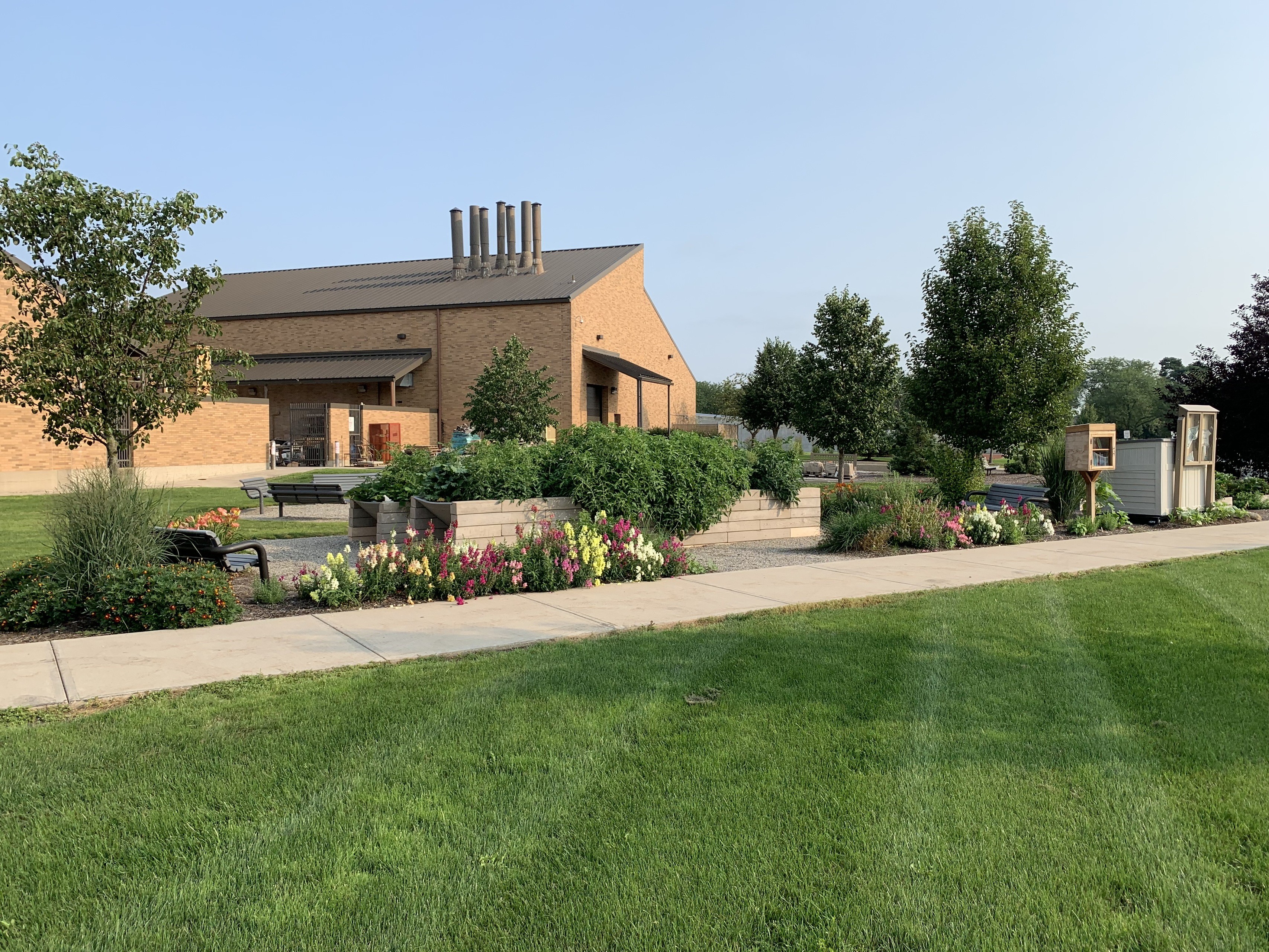
Where Are They Now?!
by Dr. Nick Hennessy - Sustainability Manager
Over the years, many interns have walked in and out of The Office of Campus Sustainability doors. These interns have made major contributions and impacts that have marked successful milestones for the Office of Campus Sustainability. We wanted to know what these interns have been up to and how the work they did as an intern has impacted their lives. Therefore, we started the newsletter series- “Where Are They Now?!”
This Fall, the Office of Campus Sustainability reconnected with former intern Christina Deehr.
Christina graduated from BGSU in 2018 with a Bachelor’s degree in Environmental Policy and Analysis, with a specialization in Sustainable Management. She then continued her schooling at BGSU to graduate with a Master’s degree in Public Administration in Spring, 2020. Now, Christina works as a Regional Planner for five different counties in Northwest Ohio. She applies many skills she acquired throughout her time with Campus Sustainability to her current position.
Christina Deehr | Campus Sustainability Intern, (2017-2020)
Filled with a passion to improve the way humans treat the environment, Christina worked for Campus Sustainability from 2017-2020. One of her favorite parts of the job was managing the Restore, BGSU’s on-campus re-use initiative. Even though it presented many challenges, Christina enjoyed working through them. She had a huge impact on the Restore during her time with Campus Sustainability, recalling that Campus Sustainability “diverted thousands of pounds of waste from the landfill, hosted many successful volunteer events, changed check-in procedures and donated hundreds of items to school districts, victims of fires, and victims of domestic violence.”
Christina had several other roles while in the job, including writing the Newsletter, the “Recycler” publication, and organizing Earth and Sustainability Week activities. When looking back on her time here, she is most proud of the growth of certain programs, such as the Eco-Fair, which is an Earth Week outdoor educational event, that grew from her creativity and hard work. In her second year of the Eco-Fair, she was able to grow the attendance to double what it was in her first year, and she is very proud of that.
Christina reflects back on her time here very fondly. She thoroughly enjoyed working with the other coworkers and doing the work itself in Campus Sustainability. Today, she says that she applies the skills that she developed in the office every day at her current job! However, the office taught her more than just excellent planning and sustainability skills; it continued to foster her inspiration and passion for the environment.
A summary of Christina’s final advice for current BGSU students is: get to know your professors, get a part-time job while in college, participate in as many extracurricular activities, and Reduce, Reuse, and Recycle. “You don’t realize how much waste you create until forced to address it and it is having a big impact on our environment."
Do you have any special memories of Campus Sustainability interns? Let us know at Greenbg@bgsu.edu.
Sustainable After Dark
Campus Sustainability strives to further three primary university sustainability goals in all that it does. These goals include emissions reduction, waste reduction/resource conservation, and sustainability education/outreach. A signature and long-running program entitled Friday Night Lights, was founded by students, in partnership with Campus Sustainability, nearly 10 years ago! This event provides students with the opportunity for service by going into a number of different buildings on campus and powering off designated classroom lighting that may have been left on. By turning off lights on Friday nights, electricity is conserved all weekend and saves both money and energy, and reduces BGSU’s carbon footprint. Despite significant improvements in the renewable energy percentages in the electricity profile purchased from the City of Bowling Green by BGSU, a large portion of our electricity still comes from coal-fired power plants, which is devastating to the environment and responsible for the largest percentage of our emissions. So, conserving electricity wherever we can helps to reduce our carbon footprint and is a key part of the BGSU Climate Action Plan.
Campus Sustainability has accumulated figures on energy and cost savings since Friday Night Lights began in 2010. The program was regularly attended by large groups of students from all areas of campus for many years until the pandemic and quarantine took place in spring, 2020. From 2010 until 2019, the Friday Night Lights program had amassed a total of $119,633 in energy cost savings. Additional information on the data is provided to anyone interested on the Campus Sustainability website.
An interesting factor is that the number of buildings served by this program has gradually decreased over the years, so that it now includes less than half as many buildings as it did in 2010. The reason for this is the continued addition of energy-saving technology, such as occupancy and motion sensor lighting, which is now standard equipment in new and renovated campus construction. It has long been noted that the Friday Night Lights program would properly and appropriately be “out of business” if BGSU’s energy reduction technology reached all buildings, and it appears that we are on our way towards that.
The Friday Night Lights website page contains information on the numerical data, energy savings in costs, a brief history on the event, and instructions on how to volunteer for the event. Currently, the Friday Night Lights event, which begins promptly at 6:30pm on Fridays is coordinated by Sustainability Intern, Madison Carney. If you would like to be a part of this program, attendance is currently on a first come, first served basis. We can only accept a maximum of 30 students for each event. Volunteers meet with our coordinator at the Union, receive a briefing on the event, take an assignment, and go to work. If you would like more information on the event, you can contact Campus Sustainability at greenbg@bgsu.edu, check the Campus Sustainability Facebook, Twitter or Instagram pages for announcements, or head over to the Union Theater entrance on the second floor on Friday nights at 6:30pm and see the action in person!
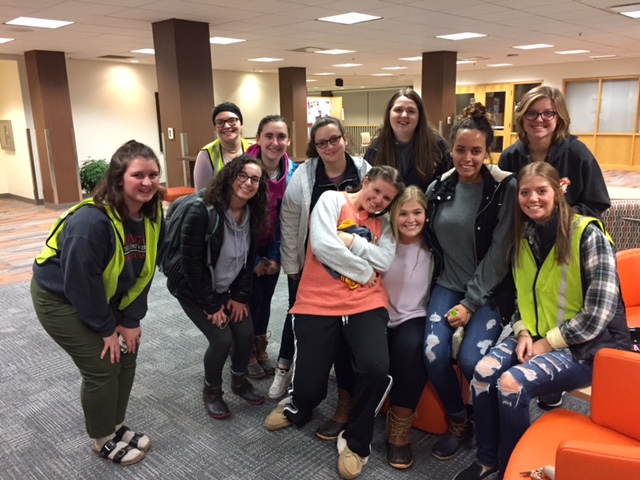

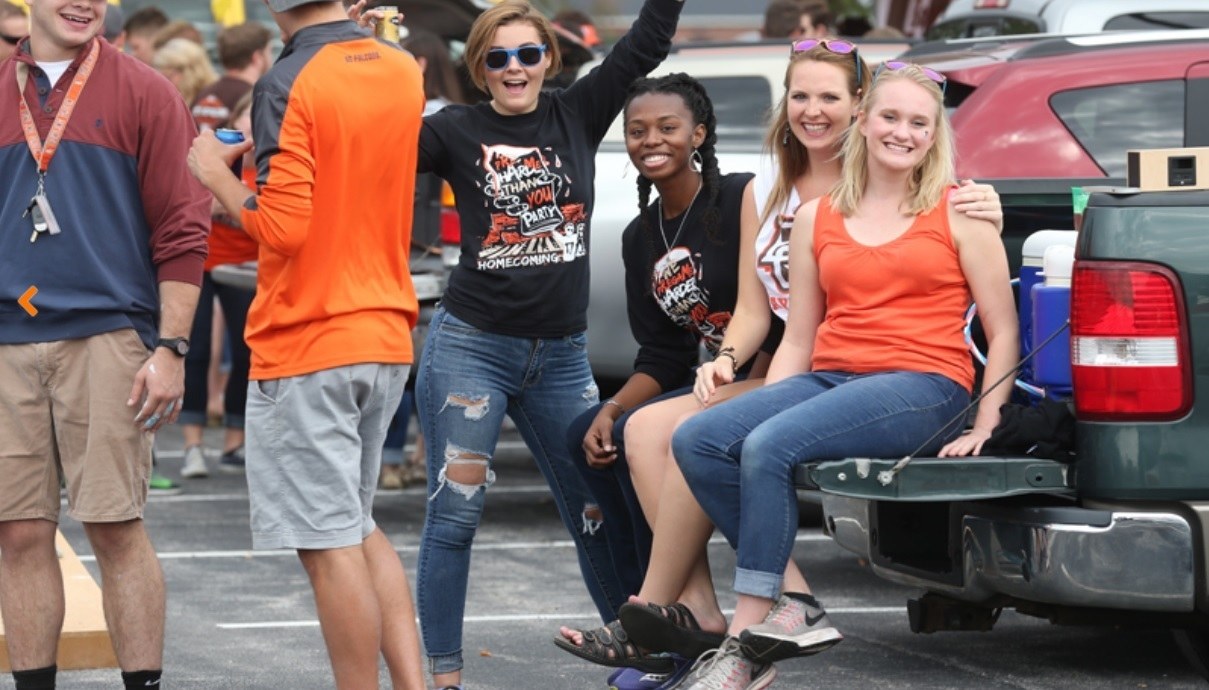
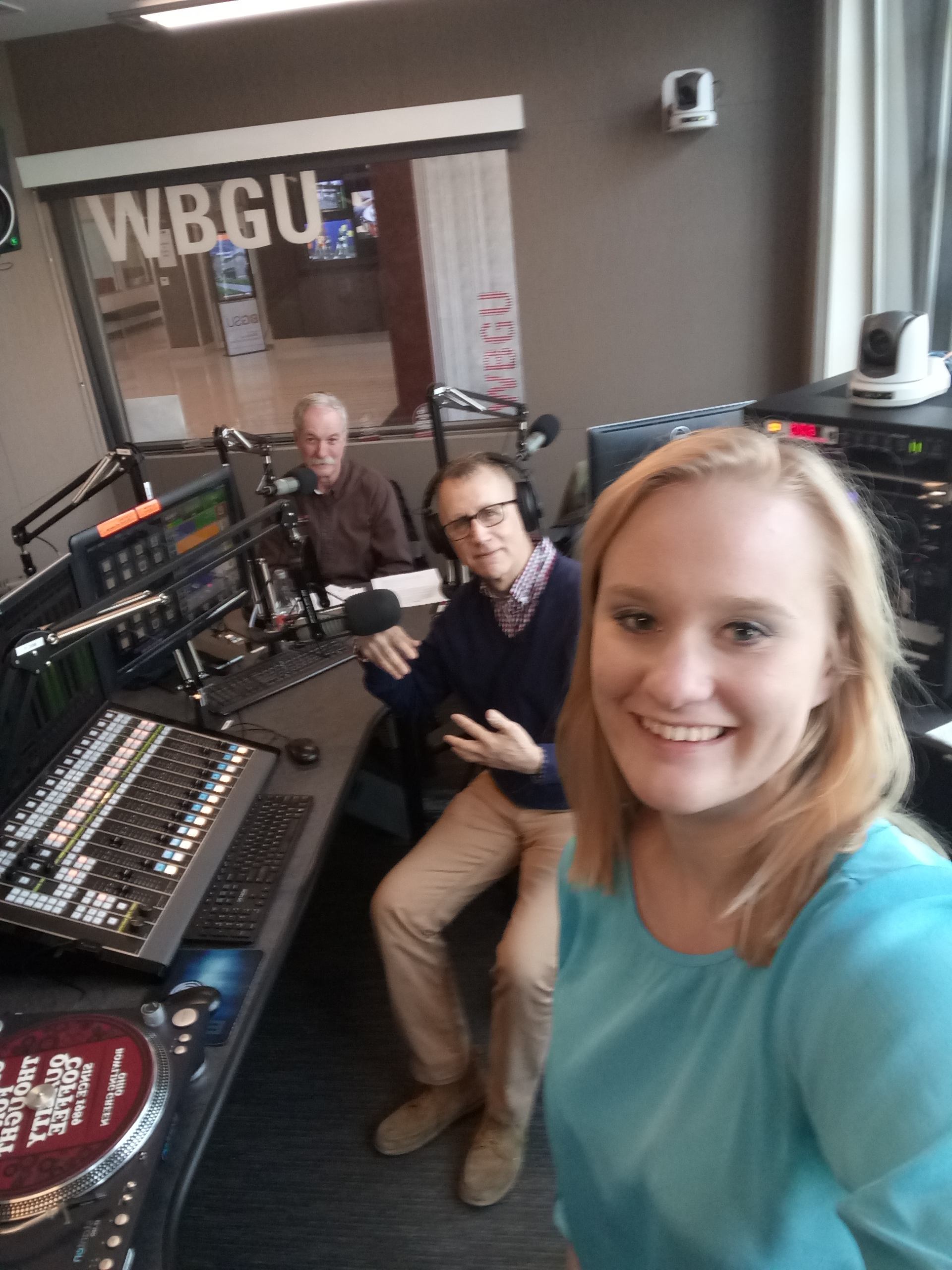
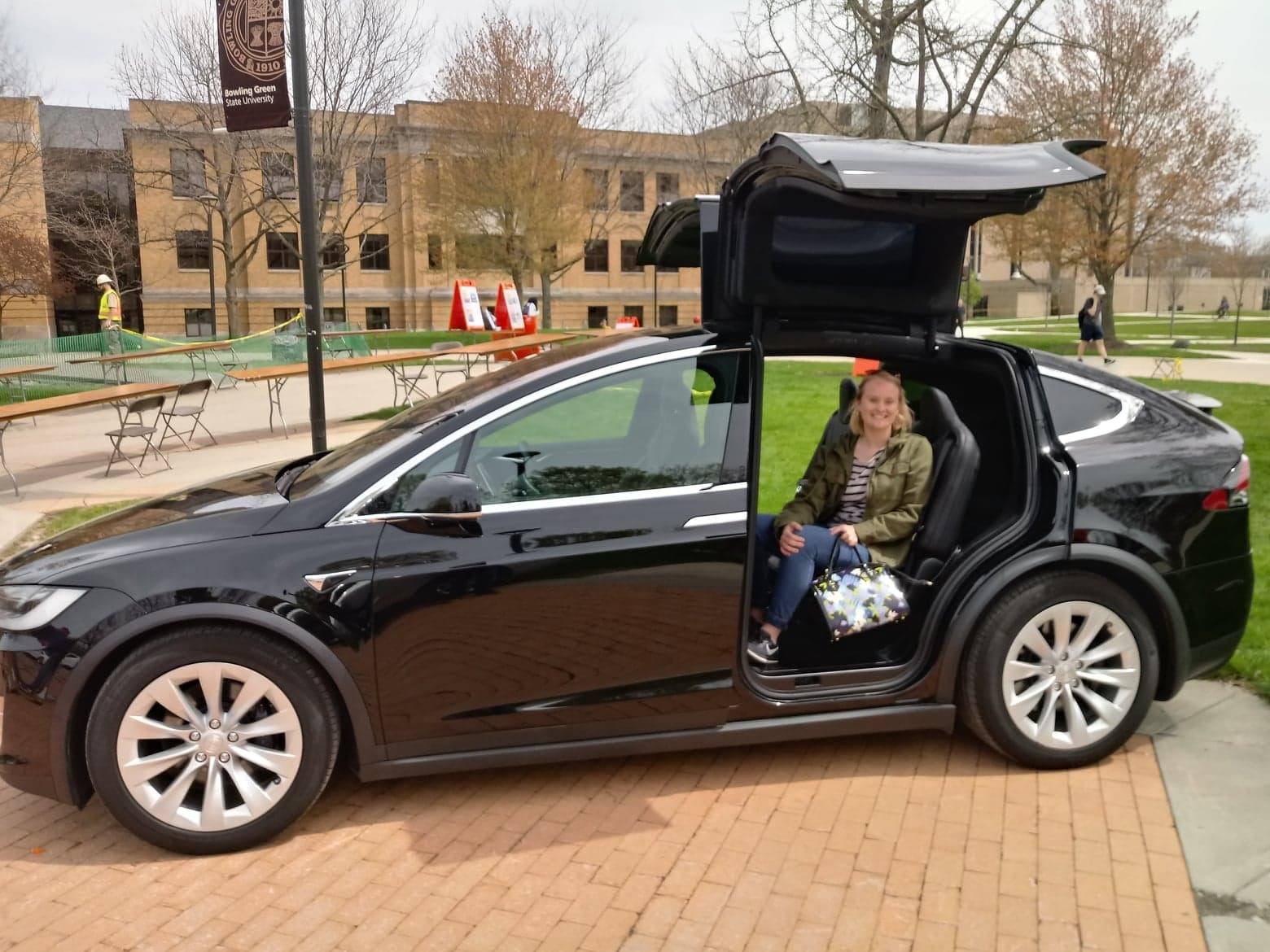
Bike For The Environment with BGSU Bike Rental!
by Dr. Nick Hennessy - Sustainability Manager
One of BGSU’s sustainability goals is to reduce our carbon-based emissions generated from the many things we do on campus. We do this by finding ways to be as energy efficient as possible and striving to utilize renewable energy sources. A fairly large part of BGSU’s emissions is attributable to transportation. Students, faculty, and staff all use some form of transportation in their daily commute. Whether that commute is by car, bus, bike, or on foot, commuting to campus is part of everyone’s daily routine, especially with the transition towards more inperson meetings, classes and activities.
In order to encourage a “greener” commute, Campus Sustainability created the BGSU Bike Rental Program, (formerly known as “Orange Bikes”) which is the most recent edition of an initiative to make bikes available to the university community, an effort that has been ongoing for a number of years. BGSU Bike Rental, available to current students, faculty and staff, makes bikes available to rent for a semester or academic year at a reasonable cost.
The bikes, which include many higher-end makes and models, are provided by University Police from their “lost, stolen and abandoned” bike program, and are refurbished and maintained by our student bike mechanic, Christopher Benge. All customers obtain free routine maintenance/repairs as part of the rental cost. Additionally, customers renting for the entire academic year may take advantage of free winter storage at the bike garage. We also connect customers with the proper sources of education and equipment use so they can be as safe as possible while operating our bikes.
By choosing to commute by bike, students can have the comfort of cruising to class and getting some exercise while not contributing harmful emissions. Additionally, commuting by bike avoids the hassle of trying to find a place to park a vehicle, and provides plenty of open-air “distancing” from others.
The program has been very successful this fall, with nearly all of the bikes rented out. Our bike mechanic attributes that to a surge in popularity and interest in bike riding during the pandemic as an effective and safe form of transportation. Additionally, he points to advertising, promotion, the first year of a summer rental program, affordability, and the Campus Sustainability support team as all contributing to the program’s amazing success this fall. Many summer customers enjoyed their bikes so much that they renewed their rentals for the fall or full academic year, creating a loyal customer base.
If you are interested in the Bike Rental Program or have questions, contact Campus Sustainability at greenbg@bgsu.edu, check out the Bike Rental page on the Campus Sustainability website, or come by the bike garage at 507 Reed Street during our open hours. If you’re not one of our customers, but are still a bike rider, note that we’ll be offering “Bike Repair and Maintenance 101”, a free program, during Campus Sustainability Week on Wednesday, October 20, at 4:30pm, with a signup link to be published soon. If you didn’t get a chance to rent this fall, don’t miss out on this amazing opportunity for spring semester!

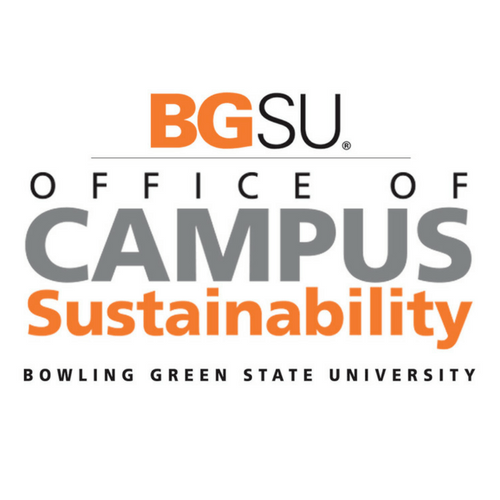
Sustainability Questions & Suggestions
Do you have any questions, comments, concerns, or suggestions related to sustainability? If so, feel free to contact us at greenbg@bgsu.edu.
Alternatively, you can reach us on Facebook, Twitter, or Instagram @GreenBGSU.
We look forward to hearing from you!
Like staying up to date on all of BGSU's sustainability updates? Be sure to subscribe to this newsletter to get it sent to your email inbox each month!
Updated: 01/19/2024 01:02PM
